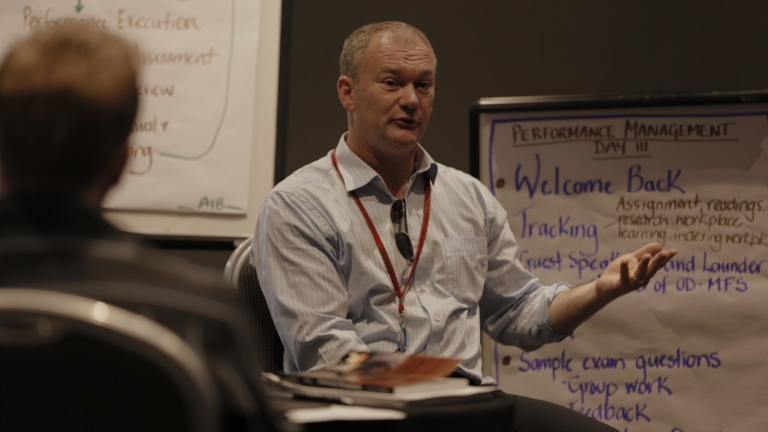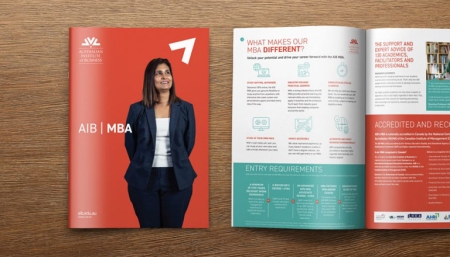AIB Guest Lecturer: David Launder

As the practical business school, AIB invites industry leaders to speak to students at its local Adelaide campus. On-campus students for our Performance Management subject were able to learn about some of the challenges faced in managing employee performance from Dr. David Launder, Director Organisational Development at the South Australian Metropolitan Fire Service (SAMFS).
SAMFS Director David Launder joined our on-campus students in a weekend workshop, to give a fantastic guest lecture about the many benefits and trials of managing performance in a large organisation.
David completed his Doctor of Business Administration studies through the Australian Institute of Business in 2012 – his thesis paper was centred around incident management and decision making in urban fire settings, which relates back to the importance of performance management.
“In performance management, it’s really essential that you know your business and you know the type of people and behaviours that contribute to that success.” He said.
“We decided we needed a far better idea of what good performance is for firefighters.”
To do that, the SAMFS have been implementing several key tools to help measure the performance of their firefighters – both quantitatively and qualitatively. Measuring response times and outcomes help them to determine what needs to be improved or adjusted for the sake of the health and safety of both their employees and their community.
“Measurement is key in continuous performance management. The old saying goes, “what gets measured gets done”, and it can act as proof of a job well done or the improvement of a person or team’s ability.” He shared.
However, it’s important to ensure that your measurement mechanisms are in line with your business goals and objectives.
“If you’re measuring the wrong thing, you’re wasting your time. Decide on your metrics carefully.” David said.
“If you don’t measure before you begin monitoring a new process or implementing a new idea, the statistics and data that you collate afterwards are essentially worthless. You need to measure both ends of the spectrum because saying ‘I reckon we improved here’ isn’t good enough.”
There are several challenges that the SAMFS continue to face when implementing performance management processes – including the high rate of union membership within the organisation, and the requirement to adjust the performance management ‘goalposts’ in order to accommodate changing organisational priorities.
“When you know what your business and your business model, you’re better equipped to understand what success is in your organisation and what human factors influence success, mediocrity and failure.”
AIB’s students came away from the lecture with an in-depth and unique insight into a complex performance management situation, and we thank David Launder for discussing his experiences in an interactive, entertaining and educational lecture.




